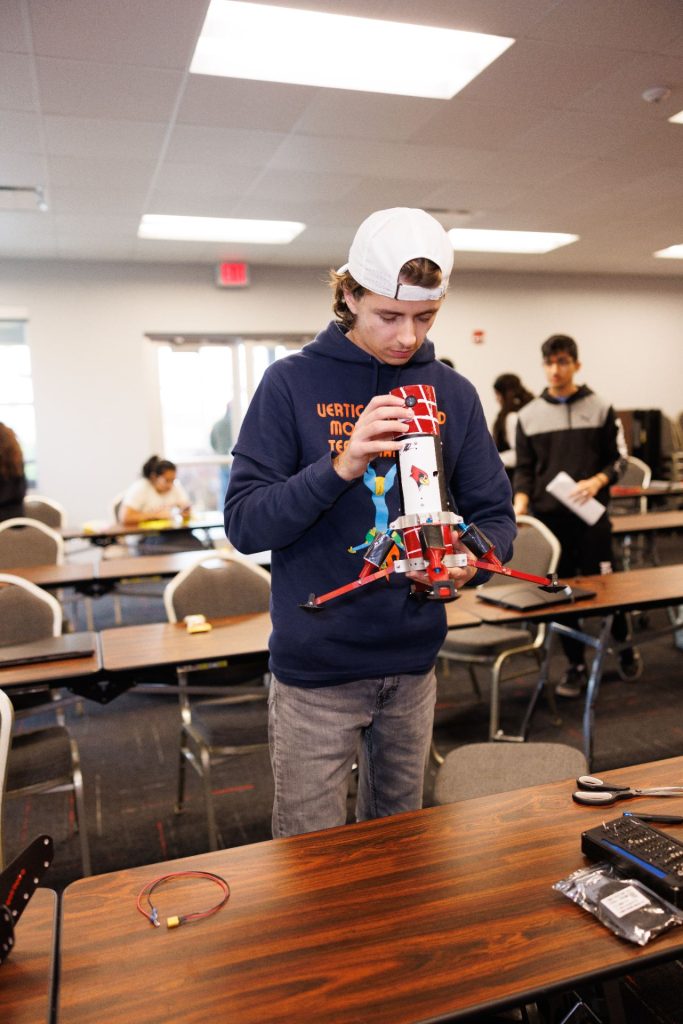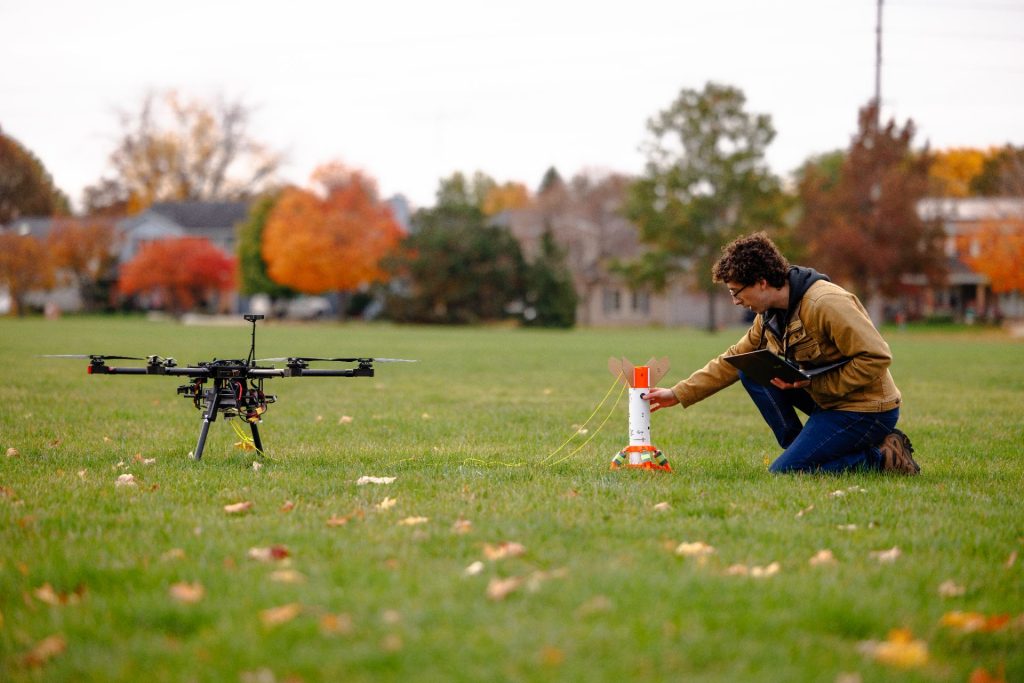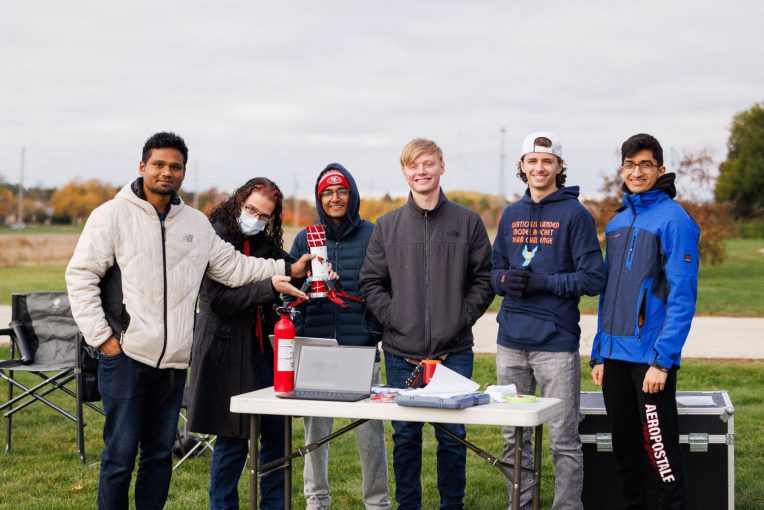On a windy Saturday in the center of an open field near the Redbird Adventure Center, students gathered around a waiting target to watch model rockets being lifted into the air by a whirring drone. A semester’s worth of work went into programing their rocket to land safely from a 22-yard, three-second free fall.
Hosted by Illinois State University for the first time October 29, the biannual Vertical Landing Rocket Competition was started by the University of Illinois Urbana-Champaign through a U.S. Department of Defense grant. This fall’s competition drew four teams from across the region, including Bradley University, which took home the top prize for landing their rocket closest to the target. The Redbird Rockets, consisting of six students from various majors, won “best rocket design.”

The teams received shipments of parts for their rockets at the beginning of the semester, as well as instructions on its assembly. Once constructed, they uploaded software to their rockets allowing it to adjust mid-fall and land standing straight up.
The two-day event kicked off Friday, October 28, with a faculty meet-and-greet and a reception for the visiting teams in Julian Hall. Rockets were inspected and the competition commenced Saturday morning.
Illinois State’s first time hosting the biannual competition coincided with the team’s first time competing as an official registered student organization (RSO).
“The goal of the Redbird Rockets is to give any ISU student the opportunity to learn more about space technology, regardless of whether or not they are majoring in the School of IT,” said Dr. Will Lewis, an assistant professor in the School of Information Technology.
Unlike most other rocket competitions, the focus is not on launching the rocket but landing it safely.
“The model rockets used by the teams are somewhat similar in design to SpaceX’s rocket or Blue Origins. They take off vertically, reach a certain altitude, and then return to Earth and land so they can be reused,” said Lewis. “In our competition, it’s lifted by a drone into the air, and then dropped from about 66 feet. The students have programmed the rocket to fire at a certain time and use a certain amount of angular momentum. The goal is to land the rocket upright once it’s dropped from the drone.”
For Lewis, the competition embodies the impact that hands-on events, such as the rocket landing competition, can have on the future of space travel and the potential each of his students bring to that future.

“In the past, access to space has been a costly endeavor. This has decreased significantly over the years. For the space technology industry to continue to grow, we need students to pursue an education in a related field,” said Lewis. “We want our students at ISU to be a part of this next generation of space technology leaders.”
Although the Redbird Rockets formed last schoolyear, they’ve already had a lot of success. They won the Vertical Landing Rocket Competition last fall and again in the spring. As the RSO grows, new members are learning from returners in a self-sustaining cycle.
“The older, more experienced students help the new members of the team learn what needs to be done, learn aerodynamic concepts that need to be considered when assembling and calibrating the rocket,” said Lewis. “The knowledge from previous experience is constantly being passed on to newer members.”


Lo Norsworthy, president of the Redbird Rockets RSO and a senior cybersecurity major, said Redbird Rockets will continue recruiting students who are curious about the industry. They also hope the RSO can connect with local high school students who have a budding passion for space exploration.
“I started messing with computers when I was seven or eight. I don’t think I would have followed this path and been able to do as many cool things as I’ve been able to do if I hadn’t had that initial introduction when I was younger,” said Norsworthy. “I want to introduce that to people. I want people to be interested in doing things that are challenging but rewarding.”
Norsworthy sees the event as a launchpad for careers of the future.
“I think giving a concrete example of what we can do, what our work ultimately culminates to and how it manifests—that’s valuable,” Norsworthy said.

